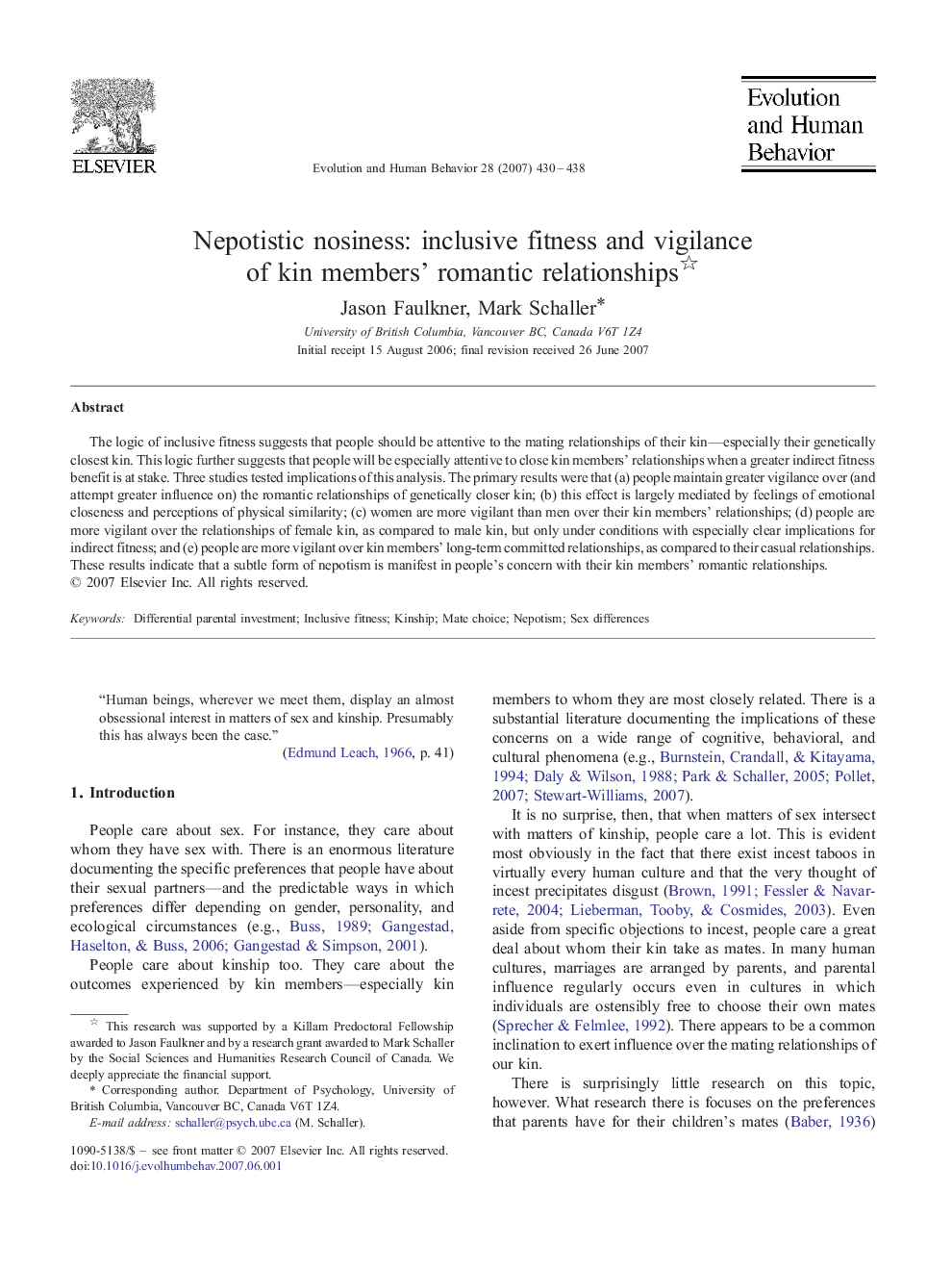| Article ID | Journal | Published Year | Pages | File Type |
|---|---|---|---|---|
| 943625 | Evolution and Human Behavior | 2007 | 9 Pages |
The logic of inclusive fitness suggests that people should be attentive to the mating relationships of their kin—especially their genetically closest kin. This logic further suggests that people will be especially attentive to close kin members' relationships when a greater indirect fitness benefit is at stake. Three studies tested implications of this analysis. The primary results were that (a) people maintain greater vigilance over (and attempt greater influence on) the romantic relationships of genetically closer kin; (b) this effect is largely mediated by feelings of emotional closeness and perceptions of physical similarity; (c) women are more vigilant than men over their kin members' relationships; (d) people are more vigilant over the relationships of female kin, as compared to male kin, but only under conditions with especially clear implications for indirect fitness; and (e) people are more vigilant over kin members' long-term committed relationships, as compared to their casual relationships. These results indicate that a subtle form of nepotism is manifest in people's concern with their kin members' romantic relationships.
